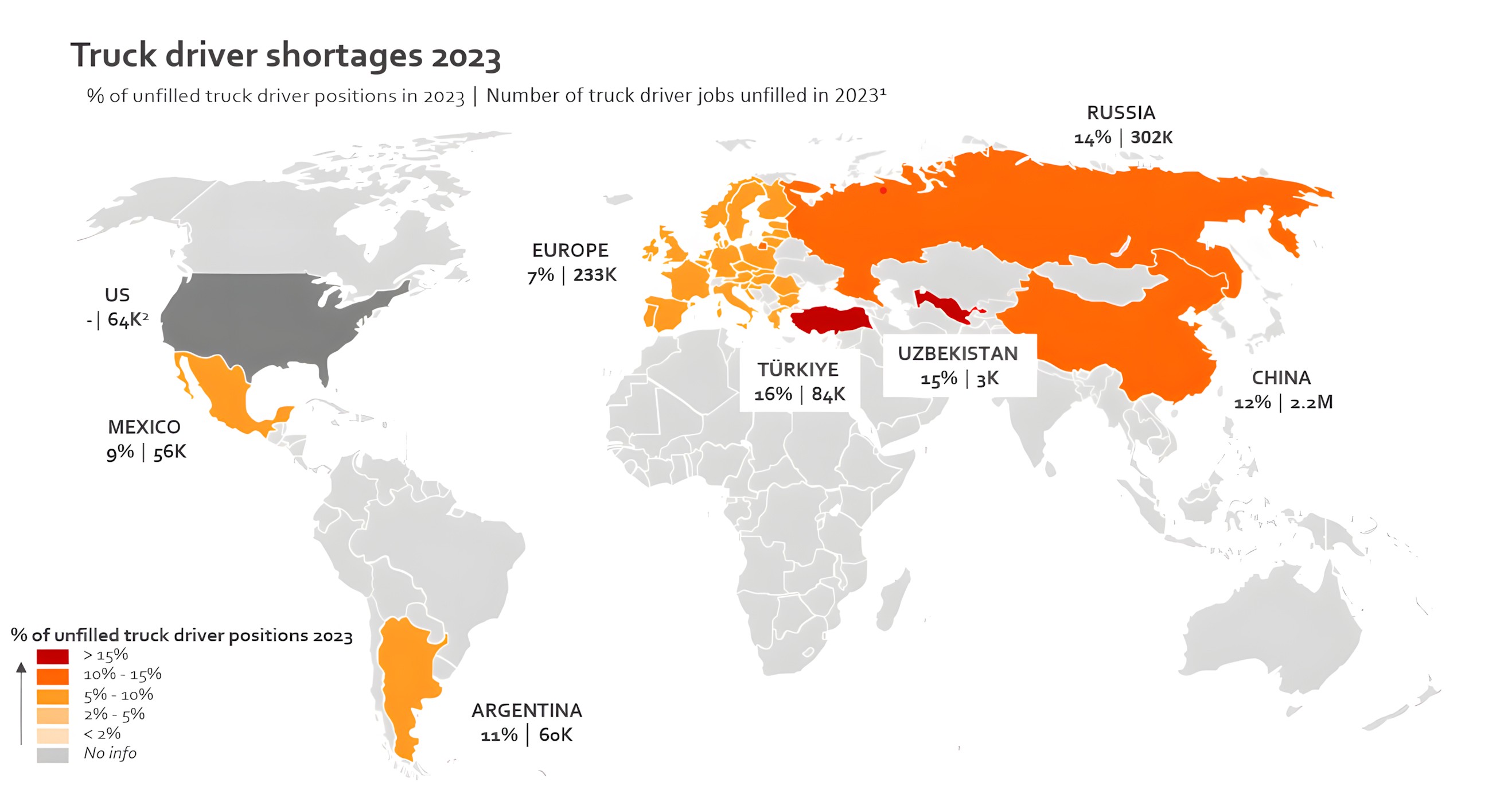How AI is shaping industries in 2024
Jan 2, 2024
5 min
2024 has seen a rise in computational power for AI. By Q3 of 2024, Big Tech spent an estimated $64.4B on AI infrastructure. This estimate could rise substantially to over $200B over the next year. Given this growing investment, AI-focused startups are reshaping industries and driving this global transformation in 2024. There have been strides in many industries thanks to this boom - here is a dive into some of them.
Healthcare
Healthcare has seen improvement in diagnosis and patient outcomes using AI through analyzing medical images with more accuracy over radiologists. This leads to earlier cancer detection and improved outcomes.
One startup that is making headlines on this is Freenome, which uses AI to detect cancer from a simple blood test. To date, the startup has raised around $1.35B from healthcare giant Roche,16z Life Sciences Growth Fund, Bain Capital and others.
Investor sentiment is on the rise in healthcare with competitors like Guardant raising $557M in 6 rounds from investors such as Lightspeed Venture Partners as well as $237.5M from its IPO at NASDAQ. They have also provided more positive results from colon cancer blood tests. Study results have generally been mixed. Improved diagnosis also depends on patient’s adherence to test instructions.
In July, Huma raised $80M to power its AI digital health platform that took its total fundraising to $300M. AstraZeneca, Hitachi Ventures and others participated in the round, while HSBC acted as the advisor for the deal. Their platform is used by more than 3,000 medical facilities with over 35 million screened users. The goal of the platform is revolutionary: to reduce health project timelines from years to days by going digital. Such is the impact that it’s having on patients that Huma has partnered with Google to bring a ‘10x Nurse’ feature to streamline and automate a patient review process, keeping a human being in the loop. Dan Vahdat, founder and CEO of Huma says they are trying to be like the Shopify for digital healthcare by making it affordable for the poor with scale.
Finance
AI’s role in Finance has led to improved efficiency, lower risk and better customer service, giving rise to improved fraud detection systems with AI in place. Startups like Sift, focus on digital fraud prevention like account takeover, payment fraud and order fraud. They have raised $161M from 21 institutional investors, their largest being a Series D of $50M in 2021 led by Insight Partners. How is Sift changing finance? They use machine learning and artificial intelligence to analyze whether a transaction attempt is genuine or shady. This helps the industry understand whether frauds work together or alone. So far, the indications are that they work together.
In other news, Feedzai has been recognized as the leading AI-driven anti-fraud platform in 2024 by Chartis Research. It also came in number four at RiskTech AI 50 2024’s ranking. Feedzai is using cutting-edge technology to prevent fraud and protect financial institutions worldwide. Pedro Barata, Chief Product Officer of Feedzai claims that they were “the first company to introduce AI as a first-class citizen in the battle against fraud”. Feedzai last raised $200M at $1B+ valuation in 2021, led by KKR.
Take a look at this data from the Federal Trade Commission in 2023. Nationwide fraud losses amount to $10B and investment scams are more than $4.6B. The most common scams were imposter scams and online shopping issues were the second most common in terms of reported fraud. After that came prizes, sweepstakes and lotteries followed by investments and business and job opportunity scams. This data is from the US alone. If we go global, the losses mount to a staggering $485.6B in 2023, thanks to Nasdaq's Global Financial Crime Report 2024.
It seems the AI in finance is poised to see major growth by 2030 the next few years due to increasing fraud. The Organisation for Economic Co-operation and Development (OECD) published a report in December of 2023 regarding the use of generative AI in finance, partly due to the ‘user-friendliness and intuitive interface of GenAI tools’.
Entertainment
Generative AI is catapulting the entertainment industry by generating both videos and music. Generating music through AI is a real possibility, while videos are a work in progress. Apps like Spotify use AI to personalize music recommendations and playlists to users. Their AI also has the ability to [translate podcasts into different languages] (Reference link). Spotify has been one of the early-adopters of AI, investing in it for over a decade.
ObEN uses AI To generate virtual avatars that users can create short videos, virtual assistants, celebrities, gamers and others with. They can reduce their time and money spent on creating content this way. The business is backed by Tencent and Softbank just to name a few top investors and raised $23.8M to date.
An article by the University of Ohio talks about how AI is playing both generative and restorative roles in musical content. While generative can certainly be crossing boundaries of ethics, due to a lack of originality from humans, restorative AI can help ‘demix’ content such as voice to isolate from unusable background music, as was done on The Beatles track ‘Now and Then’.
Transportation
Logistics
The global transportation industry is currently valued at [$6.3T and is estimated to grow to $9.2T by 2028] (Reference link). There are severe shortages of 60,000 drivers in the United States and 20,000 in Canada. A research article in late 2023 by the International Road Transport Union says that there are [3 million unfilled truck driver jobs spanning 36 countries] (Reference link), or around 72% of global GDP. This shortage is predicted to get much worse at 7 million unfilled truck driver jobs by 2028. 4.9 million of these will be in China, 745,000 in Europe and 200,000 in Turkiye. The population of drivers is also ageing, with only 12% below 25 years old.
Uber Freight has partnered with Aurora Innovation on a multi-year deal that will see Aurora’s self-driving technology offered on Uber Freight till 2030. The deal will see Aurora gain access to Uber’s shippers on their platform. Aurora plans to tap into Uber’s target group so they can get a pipeline of customers when they launch their autonomous vehicles in April 2025.

Source: Global driver shortages: 2023 year in review by IRU
Autonomous vehicles
The use of AI in transportation started a little earlier than other industries because of Alphabet Inc.’s subsidiary, Waymo that is investing in self-driving cars. The company has done 5 million driverless trips so far, 4 million of them in 2024 alone. They have solidified a ‘robotaxi’ business that is becoming synonymous with the company’s name in Phoenix, San Francisco and Los Angeles. However they are still a work-in-progress: they are noticeably slower and cost more than an Uber or Lyft. There are also regulatory uncertainties with tariffs on Chinese vehicles or software. Waymo has had a fresh injection of capital worth $5.6B from their parent.
Right now we are at an inflection point where the cost of rendering the service is high but the benefits are the bias-free decision-making that autonomous vehicles are capable of. AI does not need rest, or sleep, or go home or to work so you get a guaranteed trip instead of cancellations. This is one sector to look out for in the future.
Above are some of the major industries that AI has taken by storm in bringing change. Venture capital has certainly placed early bets in transforming industries and a lot of future bets look likely in generating value for both businesses and users using technology.
Some have even started generating ROI for investors like C3.ai which has [gone public in 2023] (Reference link) and tripled in value throughout the first half before cooling off.
UiPath has also gone public in 2021 and is sitting at $7B market cap generating over $354M revenue in Q4 of 2024. Early investors included heavyweights such as Accel, Sequoia and Tiger Global Management were part of their total raise of $1.96B before they did their IPO.
With improvements in the graphics card industry making large datasets easier to process for machine learning, and Amazon, Microsoft and Google going nuclear to help satisfy their energy needs, AI is only going to accelerate the change in industries and help democratize value for users.

